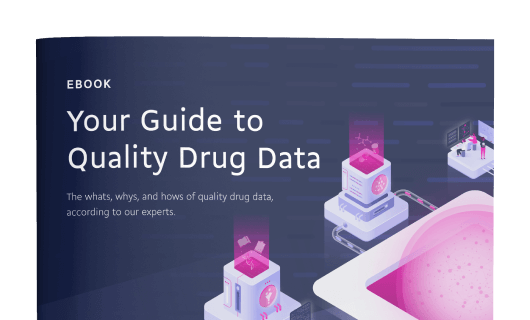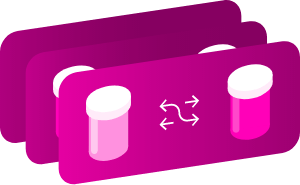Identification
- Summary
Fasinumab is a monoclonal antibody targeting nerve growth factor which is under investigation for the treatment of chronic cancer and non-cancer pain.
- Generic Name
- Fasinumab
- DrugBank Accession Number
- DB12157
- Background
Fasinumab is a human IgG1k monoclonal antibody targeted against nerve growth factor (NGF). It is currently under investigation for the treatment osteoarthritic pain1 and has demonstrated significantly greater pain relief and functional improvement as compared to standard therapy (i.e. NSAIDs and/or opioids) in this patient population.2
NGF was first discovered in the 1950s3 and was the first neurotrophic factor to be identified and biochemically characterized.4 It has since been recognized for its role in nociceptive signaling transduction and has thus become an attractive target in the treatment of chronic pain conditions.
- Type
- Biotech
- Groups
- Investigational
- Biologic Classification
- Protein Based Therapies
Monoclonal antibody (mAb) - Protein Chemical Formula
- Not Available
- Protein Average Weight
- Not Available
- Sequences
- Not Available
- Synonyms
- Fasinumab
- External IDs
- REGN475
Pharmacology
- Indication
Not Available
 Reduce drug development failure ratesBuild, train, & validate machine-learning modelswith evidence-based and structured datasets.Build, train, & validate predictive machine-learning models with structured datasets.
Reduce drug development failure ratesBuild, train, & validate machine-learning modelswith evidence-based and structured datasets.Build, train, & validate predictive machine-learning models with structured datasets.- Contraindications & Blackbox Warnings
 Prevent Adverse Drug Events TodayTap into our Clinical API for life-saving information on contraindications & blackbox warnings, population restrictions, harmful risks, & more.Avoid life-threatening adverse drug events with our Clinical API
Prevent Adverse Drug Events TodayTap into our Clinical API for life-saving information on contraindications & blackbox warnings, population restrictions, harmful risks, & more.Avoid life-threatening adverse drug events with our Clinical API- Pharmacodynamics
Not Available
- Mechanism of action
During embryonic development, nerve growth factor (NGF) binds to tropomyosin receptor kinase A receptor (TrkA) and the low-affinity p75 neurotrophin receptor (NTR) on developing neuronal cell surfaces, which activates signaling pathways involved in neuronal growth and survival.3 In adults, the primary role of NGF shifts towards influencing nociceptive signaling transduction by releasing inflammatory mediators and regulating ion channels or receptors.3,4
Fasinumab is a human IgG1k monoclonal antibody targeted against NGF,1 interrupting pain signaling pathways and thus alleviating pain and improving function in patients suffering from chronic pain conditions.
Target Actions Organism ABeta-nerve growth factor inhibitorHumans - Absorption
Not Available
- Volume of distribution
Not Available
- Protein binding
Not Available
- Metabolism
- Not Available
- Route of elimination
Not Available
- Half-life
Not Available
- Clearance
Not Available
- Adverse Effects
 Improve decision support & research outcomesWith structured adverse effects data, including: blackbox warnings, adverse reactions, warning & precautions, & incidence rates. View sample adverse effects data in our new Data Library!Improve decision support & research outcomes with our structured adverse effects data.
Improve decision support & research outcomesWith structured adverse effects data, including: blackbox warnings, adverse reactions, warning & precautions, & incidence rates. View sample adverse effects data in our new Data Library!Improve decision support & research outcomes with our structured adverse effects data.- Toxicity
Not Available
- Pathways
- Not Available
- Pharmacogenomic Effects/ADRs
- Not Available
Interactions
- Drug Interactions
- This information should not be interpreted without the help of a healthcare provider. If you believe you are experiencing an interaction, contact a healthcare provider immediately. The absence of an interaction does not necessarily mean no interactions exist.
Drug Interaction Integrate drug-drug
interactions in your softwareAbciximab The risk or severity of adverse effects can be increased when Abciximab is combined with Fasinumab. Adalimumab The risk or severity of adverse effects can be increased when Adalimumab is combined with Fasinumab. Aducanumab The risk or severity of adverse effects can be increased when Fasinumab is combined with Aducanumab. Alemtuzumab The risk or severity of adverse effects can be increased when Alemtuzumab is combined with Fasinumab. Alirocumab The risk or severity of adverse effects can be increased when Alirocumab is combined with Fasinumab. - Food Interactions
- Not Available
Categories
- Drug Categories
- Chemical TaxonomyProvided by Classyfire
- Description
- Not Available
- Kingdom
- Organic Compounds
- Super Class
- Organic Acids
- Class
- Carboxylic Acids and Derivatives
- Sub Class
- Amino Acids, Peptides, and Analogues
- Direct Parent
- Peptides
- Alternative Parents
- Not Available
- Substituents
- Not Available
- Molecular Framework
- Not Available
- External Descriptors
- Not Available
- Affected organisms
- Not Available
Chemical Identifiers
- UNII
- 11T51Q3082
- CAS number
- 1190239-42-9
References
- General References
- Kaplon H, Reichert JM: Antibodies to watch in 2021. MAbs. 2021 Jan-Dec;13(1):1860476. doi: 10.1080/19420862.2020.1860476. [Article]
- Cao Z, Zhou J, Long Z, Li Y, Sun J, Luo Y, Wang W: Targeting nerve growth factor, a new option for treatment of osteoarthritis: a network meta-analysis of comparative efficacy and safety with traditional drugs. Aging (Albany NY). 2020 Dec 3;13(1):1051-1070. doi: 10.18632/aging.202232. Epub 2020 Dec 3. [Article]
- Bimonte S, Cascella M, Forte CA, Esposito G, Cuomo A: The Role of Anti-Nerve Growth Factor Monoclonal Antibodies in the Control of Chronic Cancer and Non-Cancer Pain. J Pain Res. 2021 Jun 28;14:1959-1967. doi: 10.2147/JPR.S302004. eCollection 2021. [Article]
- Kumar V, Mahal BA: NGF - the TrkA to successful pain treatment. J Pain Res. 2012;5:279-87. doi: 10.2147/JPR.S33408. Epub 2012 Aug 17. [Article]
- External Links
Clinical Trials
- Clinical Trials
Phase Status Purpose Conditions Count 3 Completed Treatment Osteoarthritis in the Hip Joint / Osteoarthritis of the Knee 2 3 Completed Treatment Osteoarthritis of the Knee or Hip 1 3 Terminated Treatment Chronic Lower Back Pain (CLBP) / Osteoarthritis (OA) 1 2 Completed Treatment Osteoarthritis in the Hip Joint / Osteoarthritis of the Knee 1 2 Completed Treatment Sciatica 1
Pharmacoeconomics
- Manufacturers
- Not Available
- Packagers
- Not Available
- Dosage Forms
- Not Available
- Prices
- Not Available
- Patents
- Not Available
Properties
- State
- Not Available
- Experimental Properties
- Not Available
Targets

- Kind
- Protein
- Organism
- Humans
- Pharmacological action
- Yes
- Actions
- Inhibitor
- General Function
- Receptor signaling protein activity
- Specific Function
- Nerve growth factor is important for the development and maintenance of the sympathetic and sensory nervous systems. Extracellular ligand for the NTRK1 and NGFR receptors, activates cellular signal...
- Gene Name
- NGF
- Uniprot ID
- P01138
- Uniprot Name
- Beta-nerve growth factor
- Molecular Weight
- 26958.53 Da
References
- Kaplon H, Reichert JM: Antibodies to watch in 2021. MAbs. 2021 Jan-Dec;13(1):1860476. doi: 10.1080/19420862.2020.1860476. [Article]
- Cao Z, Zhou J, Long Z, Li Y, Sun J, Luo Y, Wang W: Targeting nerve growth factor, a new option for treatment of osteoarthritis: a network meta-analysis of comparative efficacy and safety with traditional drugs. Aging (Albany NY). 2020 Dec 3;13(1):1051-1070. doi: 10.18632/aging.202232. Epub 2020 Dec 3. [Article]
Drug created at October 20, 2016 21:29 / Updated at November 11, 2021 15:59

